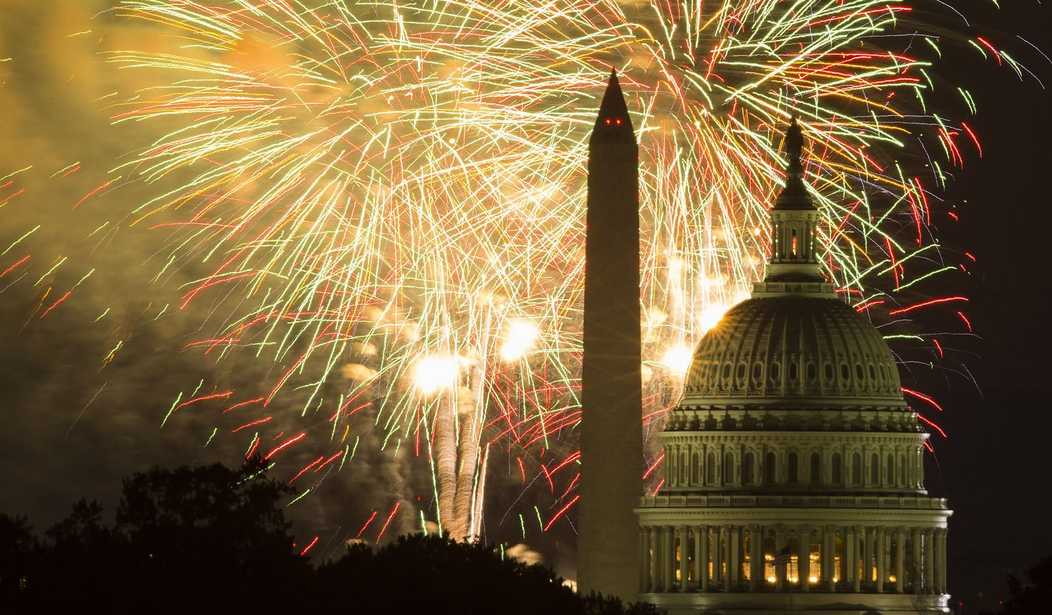If someone were to ask you to name the economically freest country in the world, what would you say?
Probably the United States. Even many non-Americans would likely give that answer. Unfortunately, they’d be wrong.
The economy that enjoys the highest level of economic freedom is thousands of miles away. It’s Hong Kong. The United States, surprisingly enough, isn’t even in the top 10 of the latest “Index of Economic Freedom,” an annual data-driven research project that scores and ranks almost every country.
So where does the U.S. finish in the 2019 Index? No. 12. That puts us between Iceland and the Netherlands, and behind two of our closest allies in the top 10: the United Kingdom (No. 7) and Canada (No. 8).
But before you assume there’s nothing to celebrate, let’s put that ranking in context.
For one thing, yes, the U.S. isn’t finishing as high as it once did in the Index. But after sliding to its worst showing yet in the 2017 edition, it’s been making a comeback.
It posted a better score on the 2018 Index— a 75.7 score (on a 0-100 scale, with 100 being the freest). This year, however, the U.S. earned a 76.8 score. That helped it move up six slots in the world rankings from No. 18.
So we’re doing better — which is more than we can say for many other countries. Among the 180 countries ranked in the latest edition, scores improved for 81 and declined for 92. Seven remained unchanged.
The U.S. still has a good amount of work to do before it again hits (or hopefully surpasses) its personal best of 81.2 points, which it posted in the 2006Index. Still, we’re moving in the right direction. So let’s consider for a moment what we’re doing right — and what we’re doing wrong.
Recommended
Two things contributed to our improved showing. One is a significant improvement in our “government integrity” score, which measures such things as cronyism and corruption. Another is a lessening of the tax and regulatory burdens.
The tax-cut package passed by Congress in December 2017 and signed by President Trump has given our economy a sizable boost. Lawmakers would be wise to lock in those gains by making those cuts permanent. For that matter, they should find other ways to reduce taxes on hard-working Americans.
But the Index editors also recorded modest declines in the U.S. scores for fiscal health (government spending is still climbing, and public debt keeps rising), labor freedom (a higher minimum wage isn’t helping), and monetary freedom (government subsidies and corporate welfare are both much too high).
Then there’s trade freedom, which has also taken a hit. The result could prove rather costly. “New protectionist policies that have raised tariffs and disrupted established manufacturing supply chains are just beginning to affect consumer prices and investment decisions,” the Index editors warn.
This year marks the 25th edition of the Index of Economic Freedom. The idea for producing such an annual guide grew out of concern in Washington in the late 1980s about the effectiveness of foreign aid. Officials knew that a commitment to the free-market system was essential in creating fertile soil for the seeds of development planted by the U.S. Agency for International Development (USAID) and other aid agencies.
There was basic agreement about the fundamentals of capitalism, but no systematic way to measure whether and to what extent those fundamentals existed in Mogadishu, Manila, or Minsk. That was the void we sought to fill.
Today, copies of the Index are in libraries around the globe. Presidents and prime ministers worldwide refer to the Index as an important guide for economic policy. Its rankings are reported annually in countless broadcast and print media.
We’re proud of that success. And we’ll be prouder still if the 2020 edition finds the United States back in the top 10 — where it belongs.

























Join the conversation as a VIP Member